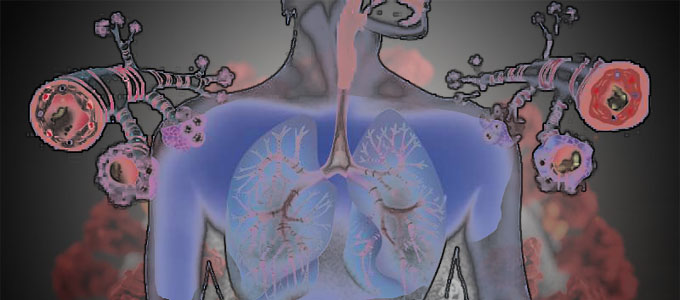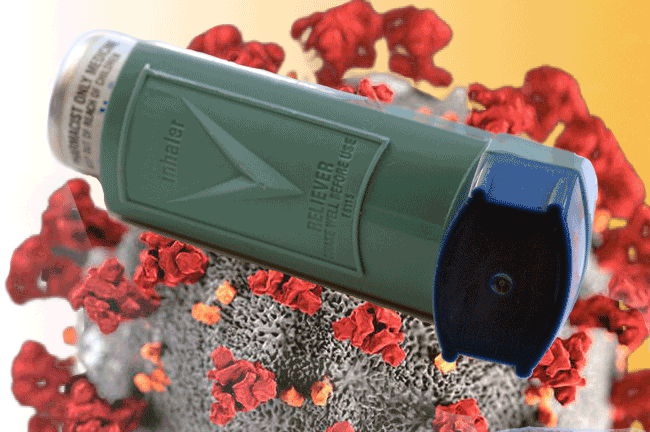What do we know about Asthma and Coronavirus?
Asthma in Australia:
Asthma is most common in wealthier English speaking countries, including Australia. It’s worth looking what happens when coronavirus and asthma coincide, because around 2.7 million Australians had asthma in 2018 according to the Australian National Health Survey 2017-2018, or, 10.8% of the Australian population.

How will COVID 19 affect asthmatics?
Does asthma mean extra complications from COVID 19?
The current consensus from major health bodies is:
Yes. Chronic asthmatics, who aren’t controlling their asthma effectively are likely at higher risk of developing complications from COVID19. Therefore, chronic asthmatics should be self-isolating during the coronavirus crisis.
However, there might be good news fresh from the frontlines for coronavirus and asthma.
Early data from some of the world’s worst COVID 19 contagions, suggest that people with asthma (it seems, effectively treated/medicated asthma) have a lower risk of hospitalisation and death if they get COVID 19. So, in hospital wards dealing with COVID 19 cases, it has been observed that those with asthma and chronic obstructive pulmonary disease are underrepresented. There is no evidence to suggest that asthma increases the risk of contracting COVID 19, or greater risk of hospitalisation. While encouraging, it needs to be noted that this data, in the form of a commentary article in the Lancet2, is freshly emergent and isn’t supported by rigorous statistical investigation. But, if rigorously investigated, it’s thesis offers promising news in the are of coronavirus and asthma.
However, the current warning, according to the World Health Organisation and other official health bodies, is that those with chronic asthma are more likely to develop complications from the coronavirus. Their advice is that as COVID 19 usually inflames the respiratory tract (nose, throat & lungs), the infection can cause an asthma attack with increased inflammation encouraging pneumonia and acute respiratory disease.
Asthma and Influenza
As a side note, asthmatics with influenza are hospitalised at a greater rate when compared to the whole population, but they stay in hospital for a shorter time, giving rise to the hypothesis that hypersensitive immune responses (like asthma) may be protective against complications from influenza.1 Studies with infected mice showed that acute allergic exacerbation induced heightened anti-viral activity.3
Is There an Increased Risk of Death for Asthma and Coronavirus?
No. Asthma hasn’t emerged as a major risk factor of death for those infected by COVID19. The top ten risk factors for coronavirus (aside from age, being 65 and over) include:
- Hypertension (high blood pressure)
- Diabetes
- Hyperlipidaemia (high cholesterol),
- Dementia,
- Coronary artery disease,
- Renal disease (kidney problems)
- COPD (chronic obstructive pulmonary disease, eg. enphysema, chronic bronchitis)
- Atrial Fibrillation (irregular heartbeat)
- Cancer
- Stroke
There have been some misguided concerns about steroids in asthma inhalers weakening immune systems, but medical advice is currently that preventive asthma medication (often containing corticosteroids) should be maintained to avoid complications of any viral respiratory infection, including COVID19.

Coronavirus and Asthma
Advice for asthmatics during COVID 19 from the National Asthma Council.
- Maintain your medication to achieve good asthma control, ensure that you’re using asthmatic medical devices and puffers and spacers in the correct manner
- Consider getting the current flu vaccination to reduce risk of complicating infection.
- Use puffers and spacers over nebulisers. Nebulisers aren’t as effective and can disperse viruses for metres around.
- Viral rspiratory infections are amongst the most common triggers for falre-ups, including acute astma.
- Asthmatics with prescribed inhaled coritcosteroid preventers who are infected with COVID19 should continue taking the preventer.
As social distancing measures begin to be eased, asthmatics should:
- Sanitise/wash your hands wherever possible, including entering and leaving buildings.
- Using “tap and pay” to make purchases rather than handling money
- Travelling and shopping at quiet times and trying to avoid crowds.
- Avoiding unessential trips.
- Asking public transport workers and taxi drivers to open vehicle windows where possible.
- If you receive a delivery and have the time, allow the package to sit untouched for a few days to allow any viruses to become unviable.

Leave a Reply